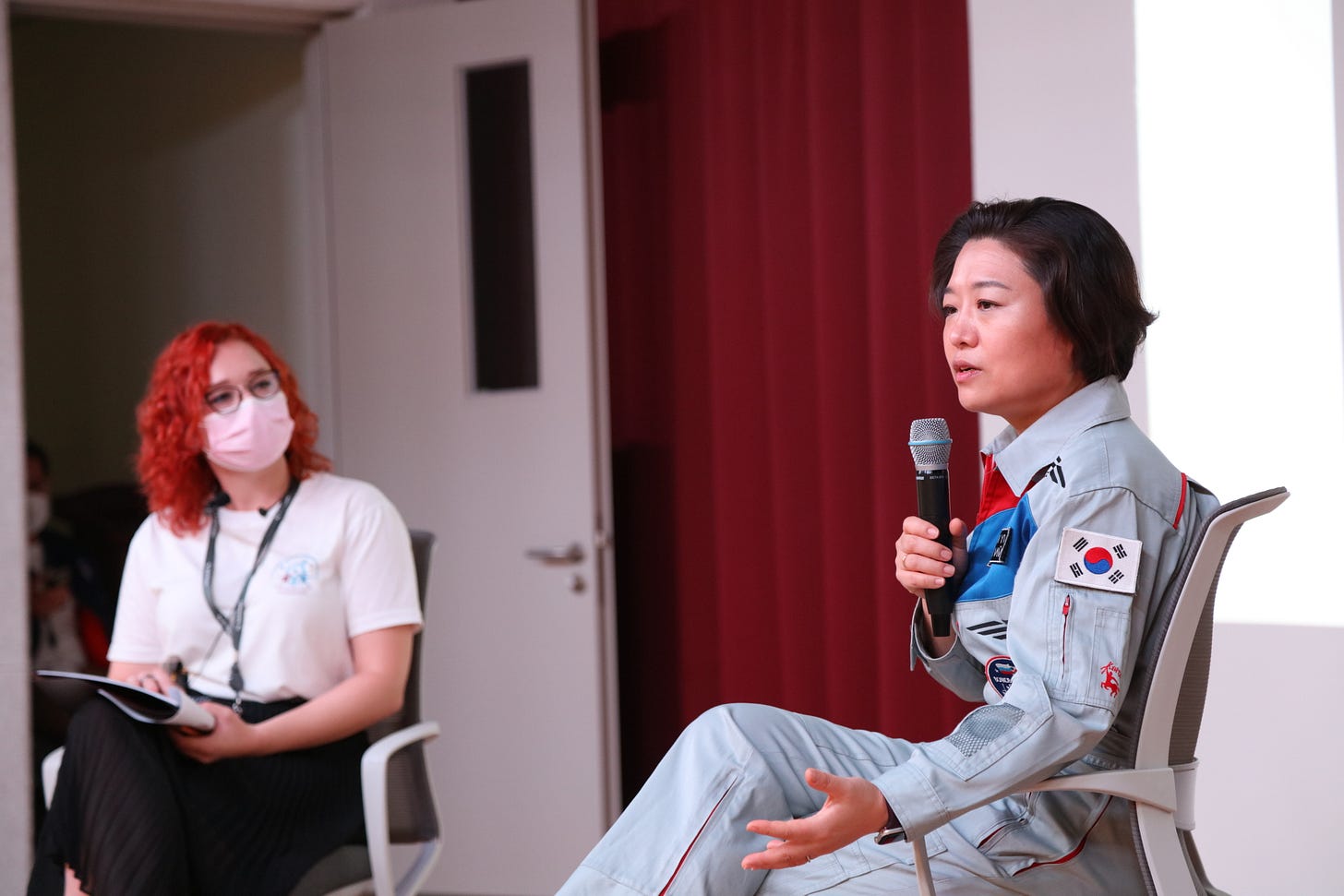Today, I’ve gathered some of the most frequently asked questions I receive about delivering presentations to peers and clients, public speaking, and appearing on stage.
“Is my English good enough?”
This question often comes from insecurities about accents and having a limited vocabulary. The answer is simply: “Yes.” Good enough? - Absolutely. But we can always work on clarity and confidence.
If you think your accent sometimes makes you hard to understand, practice with tongue twisters. Also, remember to warm up your voice before going on stage.
📖 Regarding vocabulary, in oral communication, it is actually better to use simpler phrases and words you know well. Avoid memorising new terms just for a presentation. Simple vocabulary leads to better fluency.
“How do I answer a question I don’t know the answer to?”
If you truly have no answer, open up a conversation about the topic. Give your best consideration and back it up with your knowledge. Then, invite the person who asked the question to connect with you and share their own ideas.
🙋♀️ A Q&A is always an opportunity to learn, build connections, and explore new ideas.
“How do I simplify complex ideas without losing accuracy?”
By analogy.
Give examples.
Tell a story.
All of the above help your audience visualise complex ideas. You don’t have to lose accuracy - start with the scientific or technical explanation, then reinforce it with real-life analogies, concrete examples, and compelling stories.
“How can I seem more confident on stage?”
To appear more confident, focus on your body language. The most important part is practicing your baseline posture. Imagine how you want to be seen:
😎 Perhaps standing straight, shoulders relaxed, weight balanced between both feet, arms naturally at your sides, or resting on your waist. Do you see yourself with a confident, professional smile?
Now that you’ve imagined it - practise it. Stand in front of a mirror and observe yourself. What impression do you project?

“What’s the best way to start a technical presentation?”
Start with a hook. Why should your audience care? The short answer to that is your hook. It could be:
An important fact,
An unexpected statistic,
A warning,
A story,
A question.
🎯 Whatever it is, it must grab attention and hint at your main message.
“What do I do with my hands when I’m on stage?”
Use them! Gesture purposefully to help your audience visualise your points - it will improve their understanding and memory.
If you’re not there yet, keep your arms relaxed at your sides or lightly resting on your waist.
🛑 Never put your hands in your pockets or cross them over your chest - body language sends strong signals, so choose yours deliberately.
“No one is dumb who is curious. The people who don't ask questions remain clueless throughout their lives.” - Neil deGrasse Tyson 🪐
“How can I be more persuasive when presenting to decision-makers?”
Sound less like a preacher.
Give fewer options or explanations.
This advice comes from years of coaching debating. When people are presented with too many options or too much information, they feel conflicted and become indecisive. If you want to avoid hearing “We’ll think about it and get back to you later,” guide your audience’s thought process instead of overwhelming them with choices.
🏆 The best approach? Get the decision-makers to question (internally) the status quo and project themselves onto your ideas and suggestions.
“What should I do if I forget what to say during a presentation?”
If you draw a complete blank, say this: “And why is this important, you may ask?”
Then, answer it. The audience won’t even notice you lost track - they’ll just see you as more engaging. This leading question not only buys you time but also refocuses your thoughts. You’ll get right back on track!
What other questions do you have? Let me know in the comments, and I’ll help you out!
Your Coach,
Yulia



